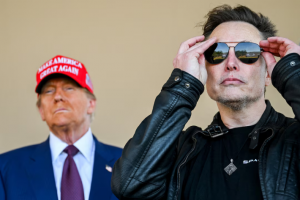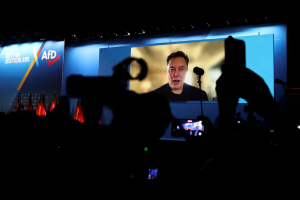Elon Musk seems to be on track to expand the services of his satellite internet provider Starlink into India, after New Delhi confirmed it will not change how it would allocate spectrum for satellite broadband due to lobbying by the country’s richest man Mukesh Ambani.
The development could translate into a key win for Musk after more than a year-long ‘battle’ with fellow billionaire Ambani to grab a share of a market that could be worth $1.9 billion by 2030.
“We will do our best to serve the people of India with Starlink,” Musk wrote on X (formerly Twitter), in response to news that India will allot spectrum for satellite services instead of auctioning it.
Also on AF: AI Data Centres Using Much More Water Than Expected
The methodology of awarding spectrum for satellite services in India has been a contentious issue since last year.
It came under extra scrutiny this week, however, after Ambani’s Reliance Jio wrote to India’s telecom ministry asking for satellite spectrum to be auctioned instead of being allotted.
Reliance said an auction was needed to ensure a level playing field and as there are no provisions in Indian law on how individuals can be provided satellite broadband services.
Auctions have been a preferred route for Ambani in India’s earlier spectrum allocations. In 2022, for instance, when India auctioned its 5G network spectrum, Ambani’s Jio splurged nearly $10 million to grab the lion’s share of the spectrum. This year the company claimed its 5G network now covers more than 90% of India’s population.
On Tuesday, however, India’s Telecoms Minister Jyotiraditya Scindia said that the satellite broadband spectrum will be allocated administratively in line with Indian laws, and its pricing worked out by the telecom watchdog.
That was after Musk said if India were to auction the spectrum “it will be doing something which is different from the rest of the world.”
Musk’s Starlink and some global peers like Amazon’s Project Kuiper have previously said they back administrative allocations as spectrum is a natural resource that should be shared by companies.
India is a member of the International Telecommunication Union, a UN agency for digital technology. It is a signatory to its treaty that regulates satellite spectrum and advocates that allocation must be done “rationally, efficiently and economically” as it is a “limited natural resource”.
“This spectrum was long designated by the ITU as shared spectrum for satellites,” Musk had said, referring to Reliance’s letter.
- Reuters, with additional inputs from Vishakha Saxena
























